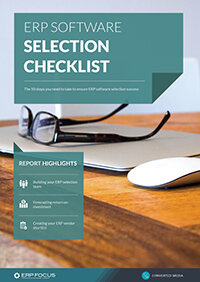Secret ERP Project Manager: ERP Purchase Decisions
In every ERP implementation, the first big decision is the ERP purchase. Normally, there is a decision-making team or a subset of the implementation team, responsible for RFPs, vendor screenings, preliminary research and evaluation, creation of a short list, final vetting, and final decision-making. There is no question that the software chosen will be one selected and endorsed by this committee. Failure to sell this committee is a failure to sell an ERP package.
Purchasing ERP is a delicate dance - Tweet This
However, not unlike a high school football game in which all of the athletes’ parents attend games and discuss among themselves the decisions, execution, and outcomes, so do all of the members of the selection committee have bosses, who watch the ERP evaluation process from a polite but very observable distance. These bosses (who often also have bosses) feel a responsibility to ensure that their subordinate(s) on the selection committee make the correct decision during ERP purchase preparation, even though the bosses are only marginally involved in the discussions, issues, and tradeoffs.
Recommended reading: Our guide to selling your ERP project to senior management will help you achieve executive level buy-in for new software.
Hence, in addition to the objective, openly-discussed, and documented process for making the software selection, there are also frequent and furious behind-the-scenes sidebars, where the committee members are counseled in private one-on-one asides.
A Delicate Dance
The C-Level, of course, will make sure their ERP purchase preferences trickle down through informal communications. The CEO will want the company with the most recognizable brand name so that the explanation to the Board goes smoothly. The CFO will want the ERP purchase that is most highly recommended by the organization’s financial auditors. The CIO will want an ERP system which has the most forward thinking architecture and strong development support for the future. If the selection committee chairman is living right, all three of these will coincidentally be the same. If not, the chairman will emerge from the selection process with a PhD in communication skills.
At least one business sponsor is going to have been fraternity brothers with an ERP vendor. Now, this vendor doesn’t actually have any working systems in your industry, but is willing to learn. Your business sponsor is going to beg you to listen to this vendor’s sales presentation as a personal favor, even though all parties agree that the software in question cannot possibly satisfy the businesses ERP requirements.
Around the time the short list is created, purchasing will begin whispering in the ear of the committee chairman whom the winner will be. Since purchasing will be responsible for writing and approving the contracts, negotiating final pricing as part of the RFP process, and approving the ERP purchase order request, they have an uncanny confidence in their ability to predict the future.
The role of the good committee chair is twofold: (1) the first is to identify and purchase the software which is the best fit for the strategic and operational needs of the organization and (2) find a viable, easy-to-understand show-stopper with each of the other packages, so that no higher-ups feel as if their influence was ignored.
Purchasing ERP is a delicate dance.
Free white paper

How to sell your ERP project to senior management
Expert advice to help you achieve approval and funding for your ERP project

Featured white papers
-

ERP Software Pricing Guide
Get the latest pricing information on over 80 popular ERP systems, and learn how to budget for your ERP project in our free guide
Download -

60-Step ERP Selection Checklist
Get the comprehensive checklist for your ERP selection project
Download -

ERP Requirements template
Plan your ERP selection using our requirements template with 100 features in an editable spreadsheet. Include special requirements and extra detail in this exclusive template.
Download
Related articles
-

The best ERP systems for process manufacturing
Consider these ERP systems when selecting your next process manufacturing ERP
-

Secret KPI: Why Your ERP Implementation Team Matters More Than Software
Learn how Godlan ensures successful ERP implementation for manufacturers with proven strategies &...
-

5 ERP pricing definitions you need to understand
Have you mastered the ERP pricing lexicon yet? Getting to grips with these five definitions is a ...

